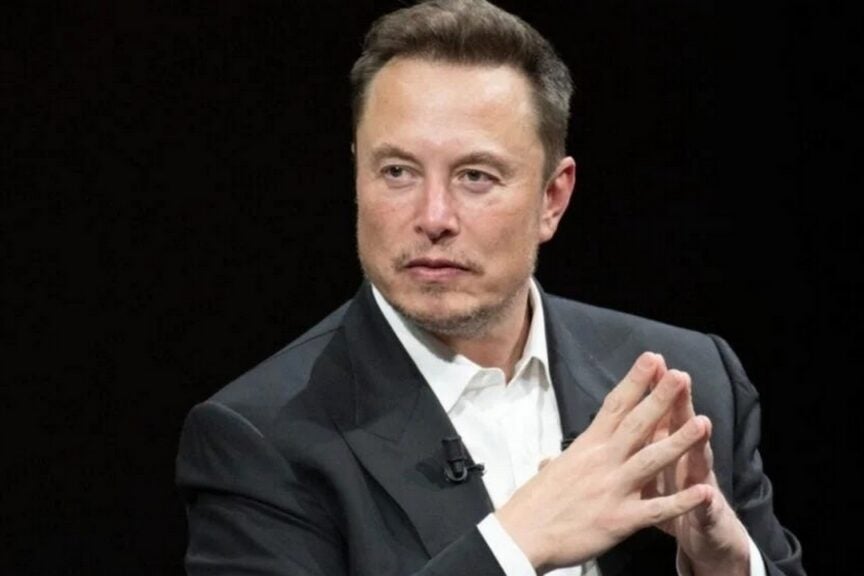Elon Musk Takes on Unconventional Role as ‘Special Government Employee’
In a surprising move that has captured the attention of both the tech world and the public, Elon Musk has been appointed as a ‘Special Government Employee’ as part of new initiatives to integrate Dogecoin into various government projects. This unexpected role not only highlights Musk’s influence in the tech sector but also raises significant questions about the intersection of technology and governance. As industry leaders and observers weigh in, the implications of Musk’s appointment could set a precedent for future collaborations between the private sector and government initiatives.
The Background of Dogecoin’s Rise
Originally created as a joke in 2013, Dogecoin has skyrocketed in popularity, transitioning from a meme to a legitimate cryptocurrency. Its rise can be attributed to several factors:
- Community Engagement: The Dogecoin community has been instrumental in its growth, organizing charitable donations and sponsoring events.
- Celebrity Endorsements: High-profile endorsements, particularly from Elon Musk, have propelled Dogecoin into mainstream consciousness.
- Technological Advancements: With advancements in blockchain technology, Dogecoin has made significant strides in scalability and transaction efficiency.
Now, with Musk’s new role as a Special Government Employee, the cryptocurrency’s potential applications in government projects are being explored seriously. The combination of Musk’s vision and Dogecoin’s unique characteristics could lead to innovative solutions in public administration.
Understanding the Role of a Special Government Employee
The designation of a ‘Special Government Employee’ is not commonly seen in the tech industry. Generally, this role allows individuals to contribute expertise while maintaining a connection to their private sector activities. For Musk, this means he can leverage his extensive experience in technology and innovation while working alongside government officials.
This role will likely involve:
- Advisory Capacity: Providing insights on how Dogecoin could be utilized in various government projects, possibly enhancing transparency and efficiency.
- Project Development: Collaborating with government agencies to develop pilot projects that test the viability of Dogecoin in public services.
- Public Engagement: Engaging with the community to educate citizens about the benefits of integrating cryptocurrency into everyday transactions.
The Intersection of Technology and Governance
Musk’s appointment raises intriguing questions about the broader implications of technology in governance. As governments around the world grapple with digital transformation, the integration of cryptocurrencies like Dogecoin into public policy could be revolutionary.
Some potential advantages include:
- Increased Efficiency: Utilizing Dogecoin for transactions could streamline processes, reducing the need for intermediaries and potentially lowering costs.
- Enhanced Transparency: Blockchain technology allows for greater transparency in government spending, as transactions can be publicly verified.
- Financial Inclusion: By embracing cryptocurrencies, governments could provide financial services to unbanked populations, fostering economic growth.
Industry Leaders Weigh In
As news of Musk’s appointment spreads, industry leaders are quick to share their perspectives. Many view this as a pivotal moment in the relationship between technology and government.
For instance, a prominent tech entrepreneur stated, “Elon Musk’s unique position allows him to bridge the gap between innovative technologies and practical government applications. His influence could lead to significant advancements in how we think about public services.”
Conversely, some critics express concern over the potential for conflicts of interest. The blending of private interests with government roles can lead to questions about accountability and transparency. As one analyst remarked, “While innovation is crucial, it’s equally important to ensure that the interests of the public are prioritized above those of private enterprises.”
Potential Challenges Ahead
Despite the optimism surrounding Musk’s new role, several challenges could arise:
- Regulatory Hurdles: The government must navigate existing regulations regarding cryptocurrencies, which can be complex and vary widely by jurisdiction.
- Public Perception: The public’s trust in government initiatives involving cryptocurrency will be critical. Ensuring transparency and accountability will be paramount.
- Technological Limitations: While Dogecoin has advanced, it may still face technological challenges that could hinder its adoption in government applications.
What Lies Ahead for Dogecoin and Government Integration?
The future remains uncertain, yet exciting. As Musk steps into this unconventional role, the possibility of Dogecoin being integrated into government projects could usher in a new era for digital currencies. The success of this initiative could inspire other governments to explore similar partnerships with tech leaders, paving the way for innovative solutions to age-old problems.
Conclusion: A New Era of Collaboration
Elon Musk’s appointment as a Special Government Employee in the Dogecoin initiative signifies a remarkable convergence of technology and governance. As we stand on the brink of this potential transformation, the impact of this collaboration could extend beyond cryptocurrencies, influencing how governments interact with emerging technologies in the future.
Ultimately, the journey will require careful navigation of the challenges ahead, but with Musk’s visionary leadership, there’s a compelling opportunity to reshape the landscape of public service. As stakeholders across sectors engage in this dialogue, the lessons learned from this initiative may well define the future of technology in governance.
See more Future Tech Daily

